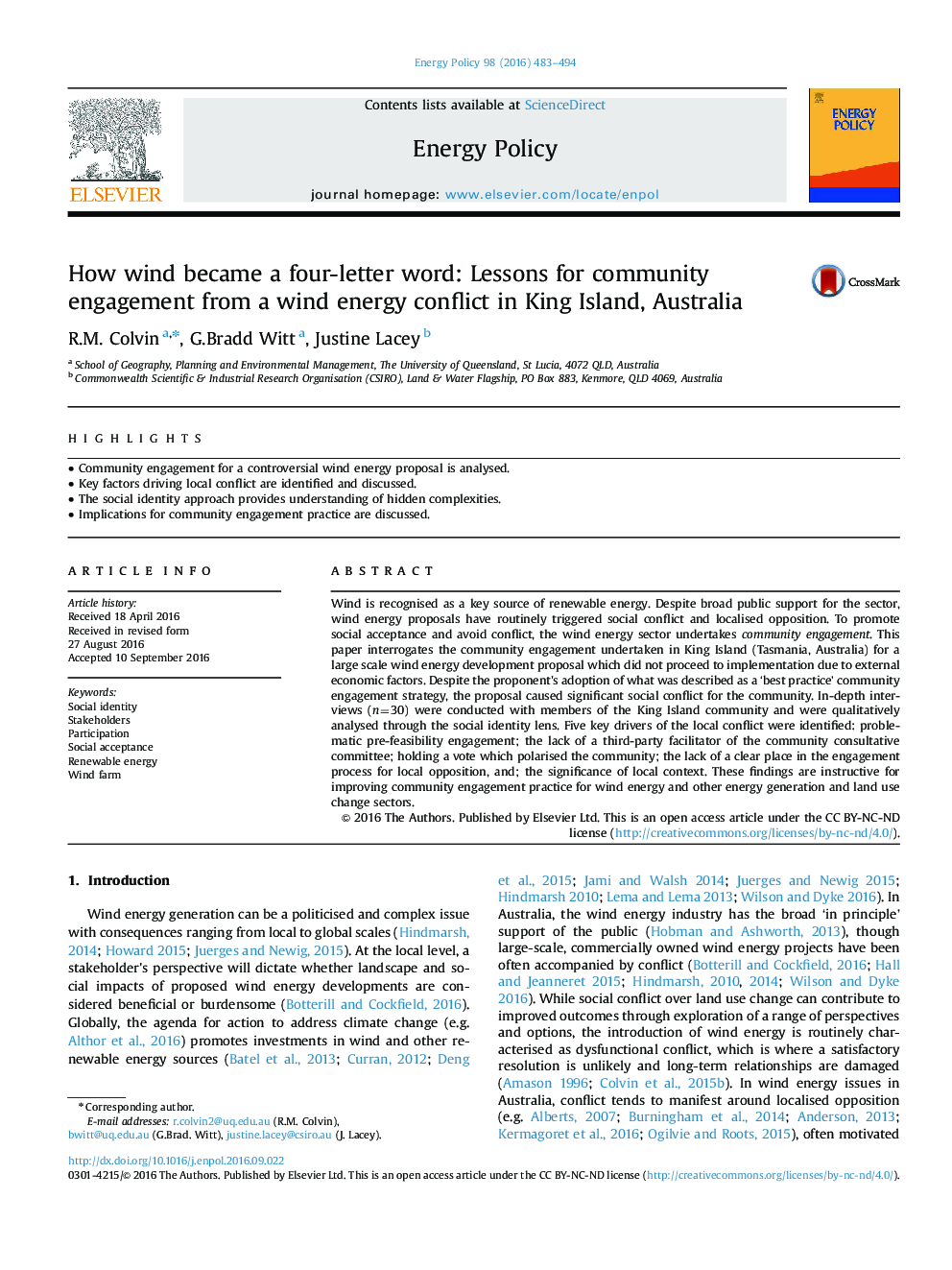| Article ID | Journal | Published Year | Pages | File Type |
|---|---|---|---|---|
| 7398406 | Energy Policy | 2016 | 12 Pages |
Abstract
Wind is recognised as a key source of renewable energy. Despite broad public support for the sector, wind energy proposals have routinely triggered social conflict and localised opposition. To promote social acceptance and avoid conflict, the wind energy sector undertakes community engagement. This paper interrogates the community engagement undertaken in King Island (Tasmania, Australia) for a large scale wind energy development proposal which did not proceed to implementation due to external economic factors. Despite the proponent's adoption of what was described as a 'best practice' community engagement strategy, the proposal caused significant social conflict for the community. In-depth interviews (n=30) were conducted with members of the King Island community and were qualitatively analysed through the social identity lens. Five key drivers of the local conflict were identified: problematic pre-feasibility engagement; the lack of a third-party facilitator of the community consultative committee; holding a vote which polarised the community; the lack of a clear place in the engagement process for local opposition, and; the significance of local context. These findings are instructive for improving community engagement practice for wind energy and other energy generation and land use change sectors.
Related Topics
Physical Sciences and Engineering
Energy
Energy Engineering and Power Technology
Authors
R.M. Colvin, G.Bradd Witt, Justine Lacey,
